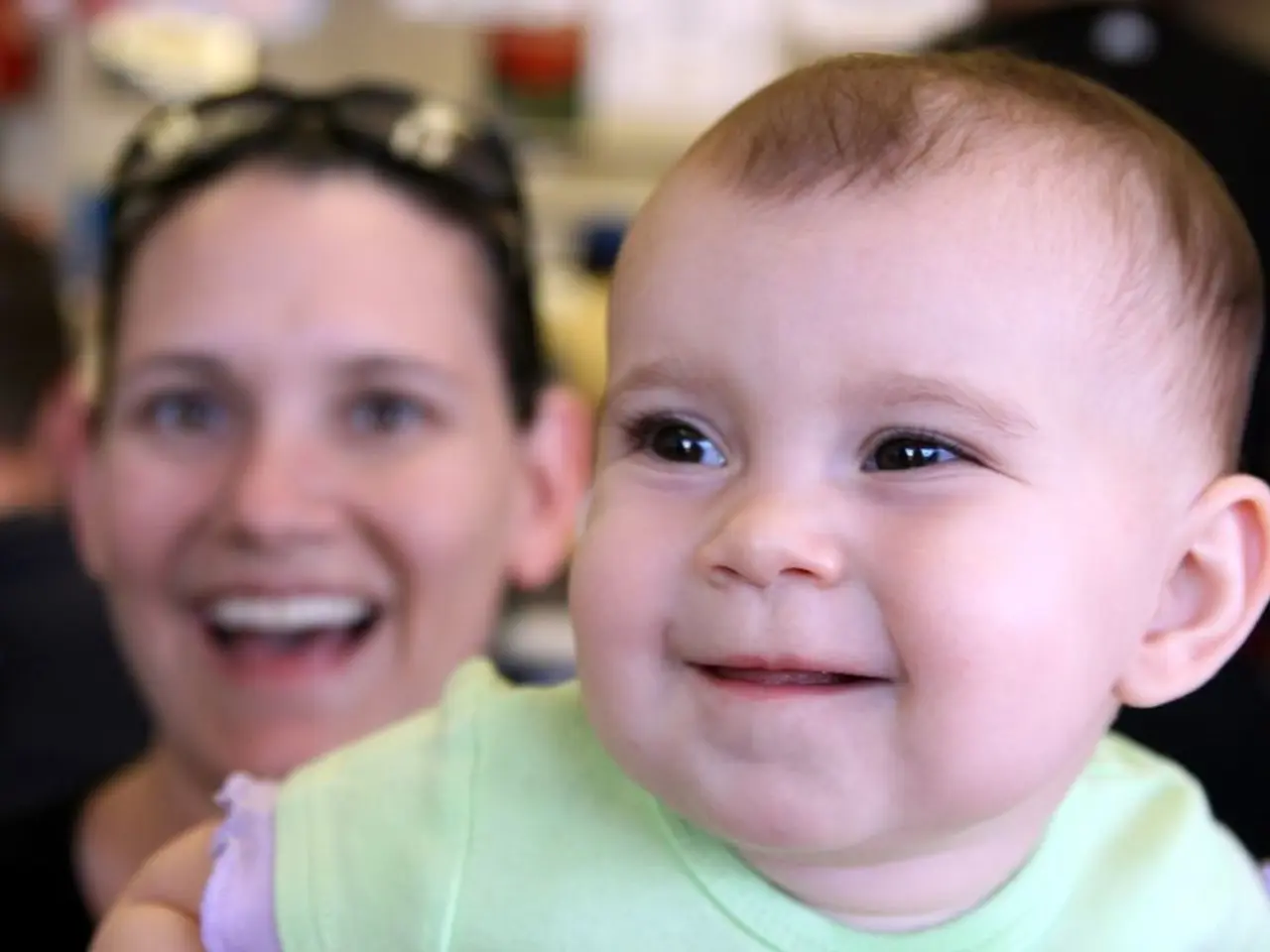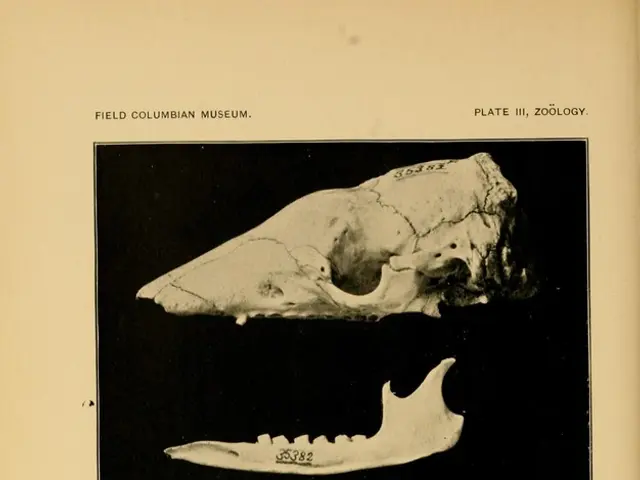Discourse on the Influence of Genetic and Environmental Factors in Psychology
The age-old debate of nature versus nurture in child development and personality psychology has taken a new turn with the emergence of epigenetics – an area of research that explores how environmental influences affect the expression of genes.
One striking example is the case of identical twins April and Judi, raised apart by adoption, who displayed contrasting developmental outcomes despite their identical genetics. Both shared interests in music and sports (nature), but their life experiences differed significantly, with Judi facing psychological distress, substance abuse, and social challenges, while April's outcomes were more positive. This case highlights how nurture (different environments and social factors) influenced their personality development and mental health more strongly than genetics alone.
Research from animal studies further supports this interplay. Early environmental factors such as nutrition, sensory stimulation, and social interaction have been shown to shape behavior development. For instance, sensory deprivation or the extent of contact with human culture can alter perceptual responses, motor skills, learning, emotionality, and social reactions.
From a developmental psychology perspective, children's personality and cognitive development in early years depend both on biological maturation and social experiences. Preschoolers expand their social horizons beyond family, gaining initiative or developing guilt based on their social interactions, illustrating the interactive roles of inherited capacities and environmental influences in shaping personality traits.
A key example in human genetics is the disease galactosemia, which is inherited genetically but requires exposure to dietary galactose (an environmental factor) to manifest symptoms. If the environmental factor (milk consumption) is controlled, the genetic disorder does not express, demonstrating gene-environment interaction.
Modern psychology and genetics reject the dichotomy of nature versus nurture, emphasizing their constant interaction in shaping development and personality. Epigenetic changes can occur through DNA methylation, histone modification, and non-coding RNA, providing a direct biological mechanism by which environmental experiences can alter how our genes function.
Behavioral genetics has enabled psychology to quantify the relative contribution of nature and nurture concerning specific psychological traits. Twin studies have shown that identical twins reared apart tend to have more similar personalities than fraternal twins, indicating a genetic component to personality. Environmental factors, such as exposure to language-rich environments, also play a crucial role in language development.
Environmental stressors can induce epigenetic changes in both animals and humans, leading to alterations in DNA methylation patterns, histone modifications, and changes in non-coding RNA expression. The diathesis-stress model posits that individuals inherit a genetic predisposition (diathesis) to a disorder, which is then activated or exacerbated by environmental stressors.
The realization that biology interacts with both the cultural context and personal choices is especially important given the recent advances in genetics, such as polygenic testing. A particular gene (MAOA) can interact with childhood maltreatment to increase the risk of aggressive behavior in adulthood, demonstrating that genetic predispositions and environmental factors contribute to personality development.
The Human Genome Project has stimulated enormous interest in tracing types of behavior to particular strands of DNA located on specific chromosomes. However, progress has been slow for complex traits like intelligence, with identified genes having small effect sizes in intelligence development.
Environmental influences, such as access to quality education and stimulating environments, also significantly impact intelligence. Research by Flynn (1987) showed that average IQ scores have increased over generations, suggesting that environmental improvements can lead to substantial gains in cognitive abilities.
Moreover, some epigenetic modifications may be passed down to future generations, potentially affecting the genetic expression of subsequent generations. Epigenetic effects can sometimes be passed from one generation to the next, although the effects only seem to last for a few generations. Maternal care in rats has been linked to epigenetic changes in offspring, affecting their stress reactivity.
In humans, studies of Holocaust survivors and their descendants have revealed epigenetic alterations associated with trauma exposure, suggesting potential transgenerational effects. These findings underscore the complex interplay between nature and nurture, highlighting how both genetic inheritance and environmental factors interact to shape a child's development and personality traits.
In conclusion, the nature versus nurture debate in psychology concerns the relative importance of genetics (nature) and personal experiences (nurture) in determining individual differences in physical and behavioral traits. While genetics play a role, it is clear that environmental factors also significantly impact development and personality. The ongoing research in epigenetics promises to shed more light on this fascinating interplay.
References: 1. The Minnesota Study of Twins Reared Apart 2. Epigenetics: The New Science of Behaviour and Inheritance 3. The Development of Personality and Social Psychology: Formation, Meaning, and Change 4. Nature vs. nurture 5. Epigenetics
- The ongoing debate in child development and personality psychology concerning the influence of genetics and environment is redefining our understanding with the rise of epigenetics.
- Case studies, like that of identical twins April and Judi, demonstrate that environmental factors significantly impact personality development and mental health more than genetics alone.
- Research from animal studies show how early environmental factors, such as nutrition, sensory stimulation, and social interaction, shape behavior development.
- Developmental psychology emphasizes the role of biological maturation and social experiences in shaping personality and cognitive development in children.
- Diseases like galactosemia, which require environmental factors to manifest symptoms, demonstrate gene-environment interactions.
- Modern psychology and genetics reject the nature versus nurture dichotomy, favoring their constant interaction in shaping development and personality.
- Epigenetic changes occur through DNA methylation, histone modification, and non-coding RNA, providing a direct biological mechanism for environmental experiences to affect gene function.
- Behavioral genetics found that identical twins reared apart tend to have more similar personalities than fraternal twins, indicating a genetic component to personality development.
- Access to quality education and stimulating environments significantly impact cognitive development and intelligence.
- Research by Flynn (1987) showed average IQ scores increasing over generations due to environmental improvements.
- Some epigenetic modifications may be passed down to future generations, affecting genetic expression.
- Epigenetic effects can last for a few generations, but research shows they may only last that long.
- Maternal care in rats has been linked to epigenetic changes in offspring's stress reactivity.
- Studies of Holocaust survivors and their descendants revealed epigenetic alterations associated with trauma exposure, suggesting potential transgenerational effects.
- Progress in tracing complex traits like intelligence to specific chromosomes has been slow, although identified genes have small effect sizes.
- The Human Genome Project has fueled an interest in the genetic basis of behavior, but the complex interplay between nature and nurture continues to challenge researchers.
- The diathesis-stress model indicates that both genetic predispositions and environmental factors contribute to personality development and the risk of psychological disorders.
- The impact of environmental stressors on cognitive functioning and mental health, including alterations in DNA methylation patterns, histone modifications, and changes in non-coding RNA expression, are areas of active research.
- The field of psychology, particularly child development, will continue to advance as more research emerges in neuroscience, personality psychology, mental disorders, treatment, cognitive development, communication, conditioning, biology, learning, mental health, research, depression, brain, adolescence, behavior, cognition, adulthood, development, classical conditioning, stress, reinforcement, child development, human behavior, psychology, society, education, social psychology, operant conditioning, attachment, social learning, culture, science, health-and-wellness, and epigenetics.




